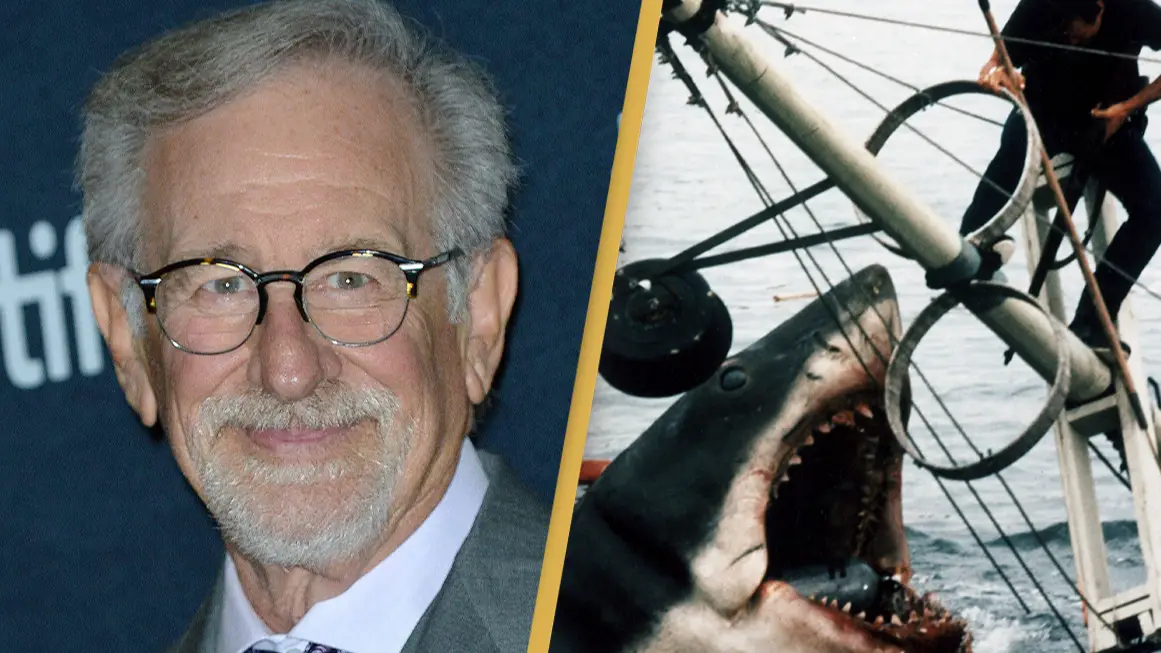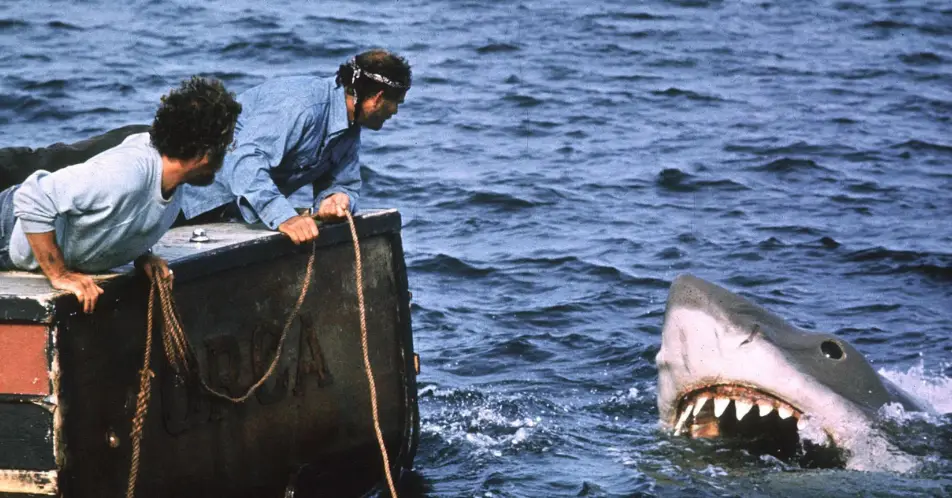
Steven Spielberg would like to apologise to all sharks for the negative press that his blockbuster film Jaws has given them.
Sure, it was the highest grossing film of its time, won three Academy Awards, and sky-rocketed the director's outstanding career, but since its release, Jaws has actually hurt the shark population.
The 1975 thriller, which was based on Peter Benchley's novel of the same name, introduced people to a new deadly killer and struck fear through audiences across the United States and beyond.
Before the film was released, sharks weren't seen as the blood-chilling threat they are today, but once Spielberg got his hands on Jaws, it was game over.
Advert
“I truly and to this day regret the decimation of the shark population because of the book and the film. I really, truly regret that,” said Spielberg during his guest spot on BBC's Desert Island Discs with Lauren Laverne.
"That’s one of the things I still fear", he said.
"Not to get eaten by a shark, but that sharks are somehow mad at me for the feeding frenzy of crazy sports fishermen that happened after 1975."
According to shark researcher George Burgess, the legendary film inspired fishermen to take their own little boats out onto the water to catch 500 pound sharks to prove their bravery, which eventually led to the wasteful hobby of shark finning.

Shark finning involves catching sharks and chopping off their fins to sell, before dumping the rest of the body back into the ocean. Although sharks could have survived a shark finning, they would simply have sunk to the bottom of the ocean and died since they could no longer swim.
The chances of being attacked by a shark are one in 3.7 million, and you're more likely to be struck by lightning or die of accidental poisoning.
But, even so, the fear surrounding the sharp-toothed sea creature has only grown, with Jaws-inspired films like The Meg, Deep Blue Sea, The Shallows, and Great White adding further fuel to the fire.
It's all rather ironic when you realise how quickly shark populations are declining, and the apex predators are actually among the most vulnerable sea creatures.
And it's not only Spielberg who regrets sparking this shark frenzy.
Peter Benchley, who became a millionaire after the success of the original 1974 novel, has confessed that he feels terribly guilty for the shark populations decline.

"What I now know, which wasn't known when I wrote Jaws, is that there is no such thing as a rogue shark which develops a taste for human flesh," he told Animal Attack Files.
Because of their reputation as a cold-blooded killer, 'no one appreciates how vulnerable they are to destruction', he added.
"It's hard to rally people behind sharks. Unlike whales or dolphins, they are hard to anthropomorphise - and they occasionally eat people."
Topics: Film and TV, Steven Spielberg, Animals